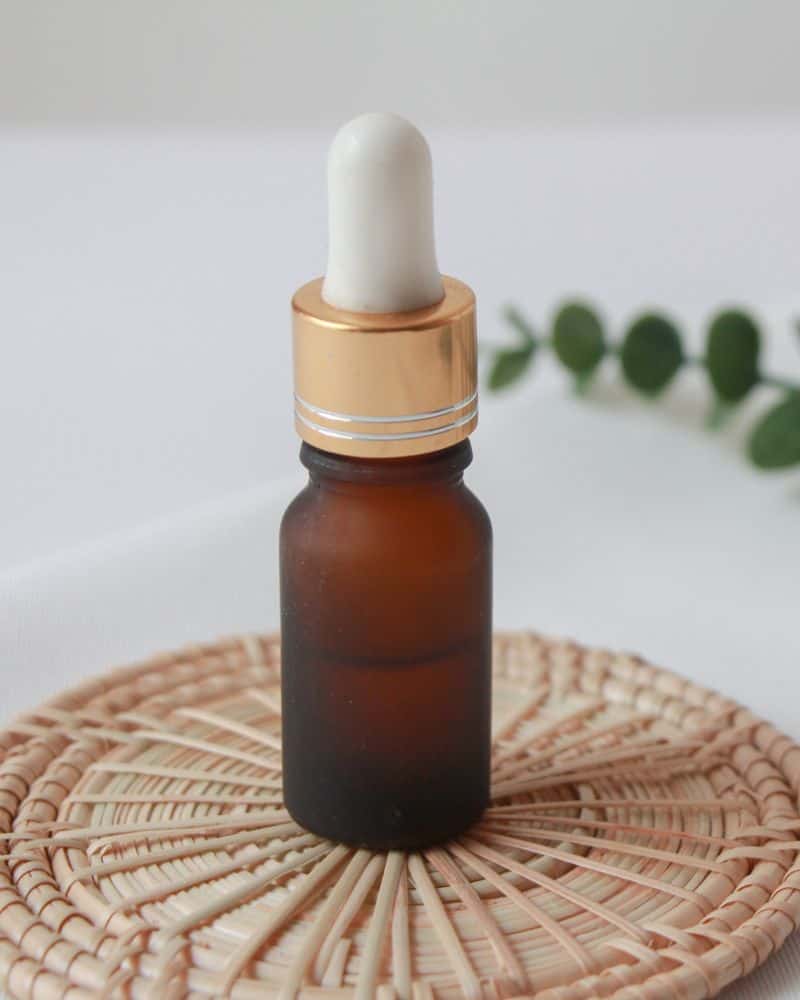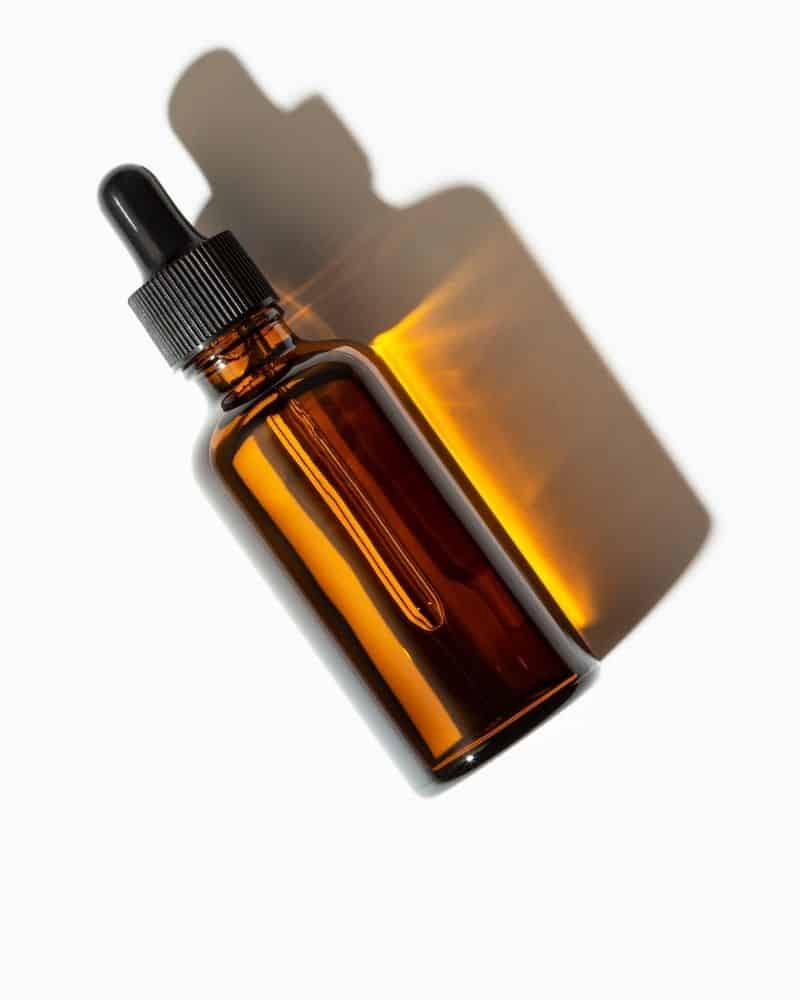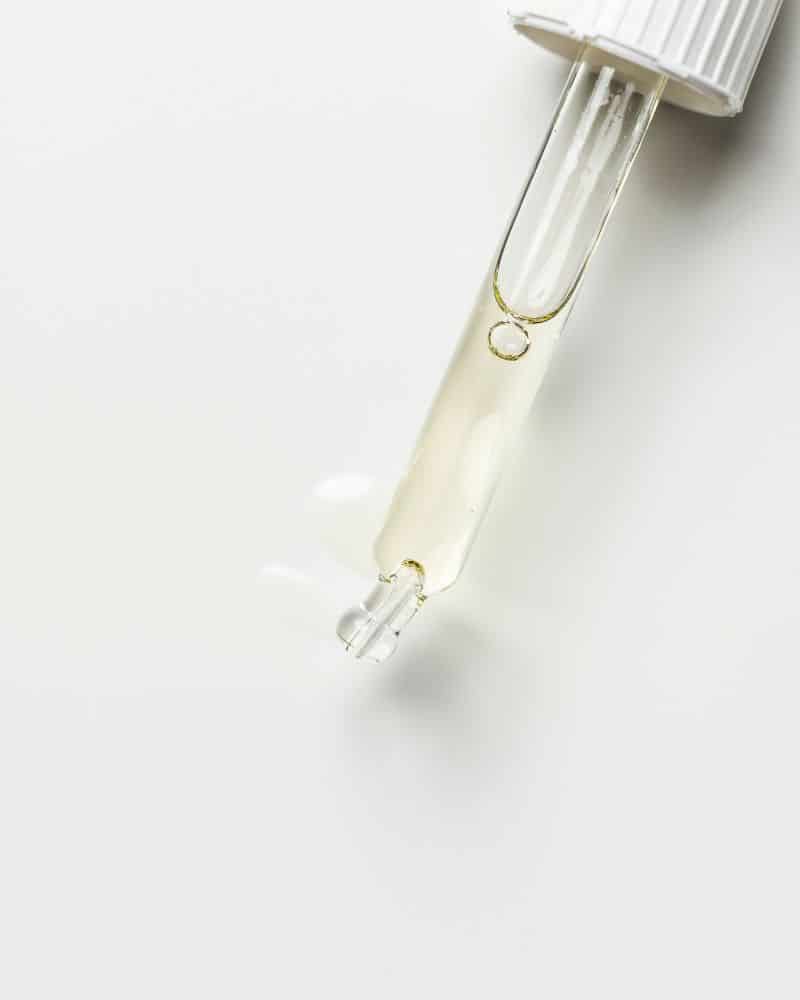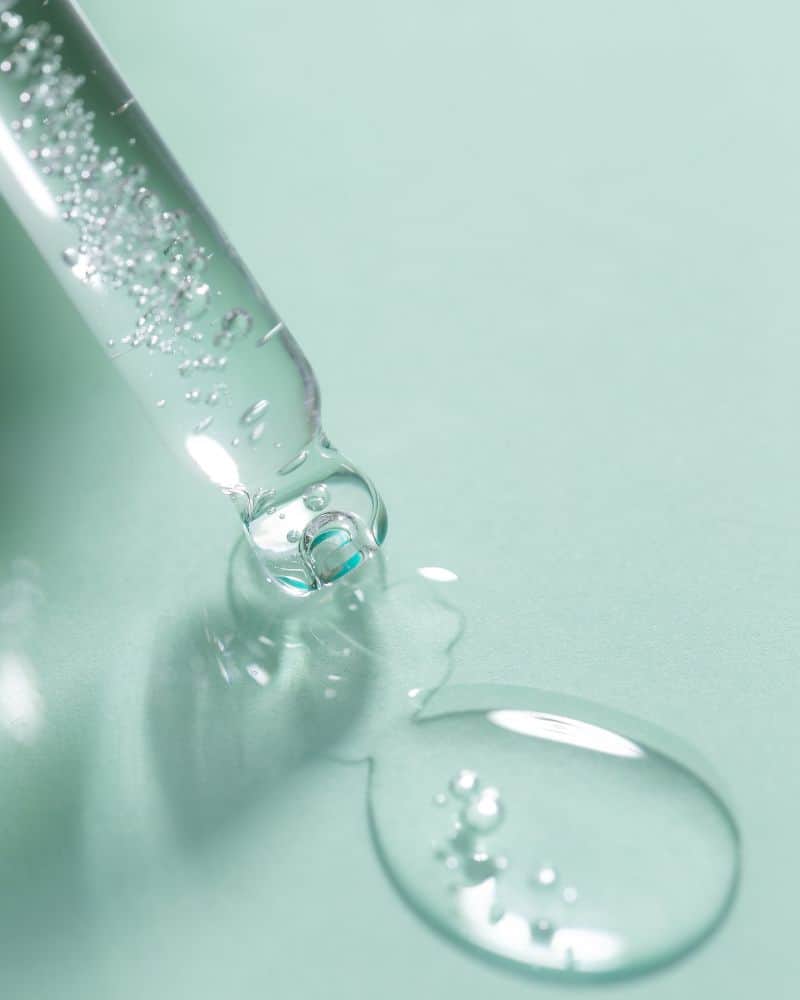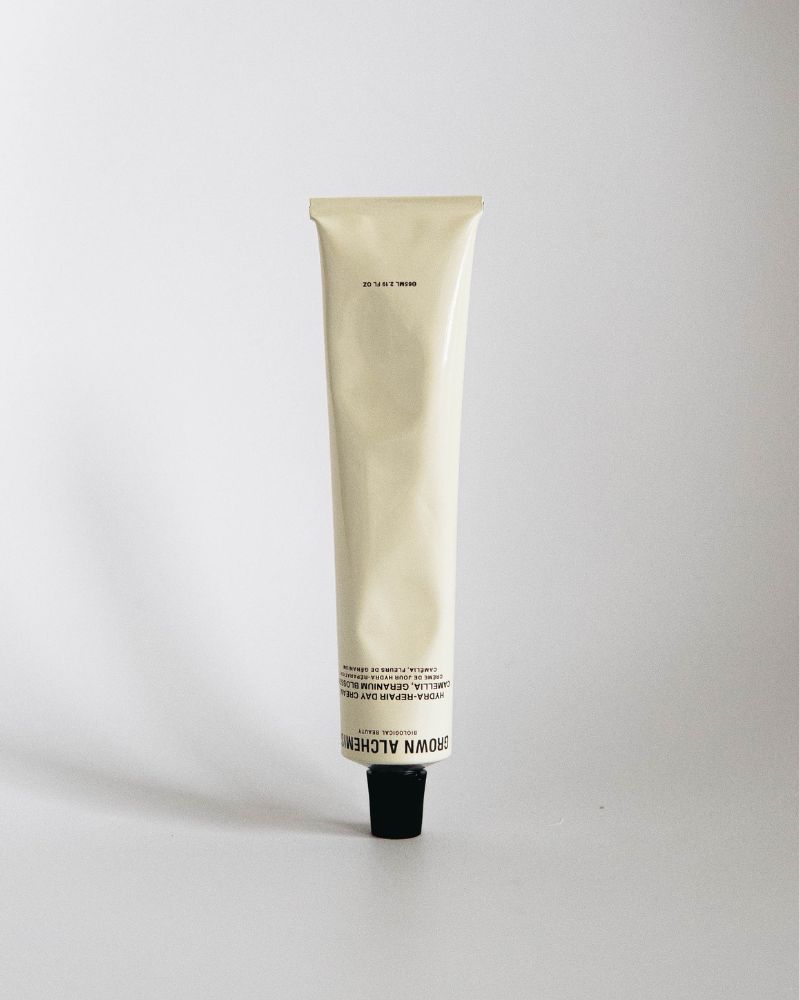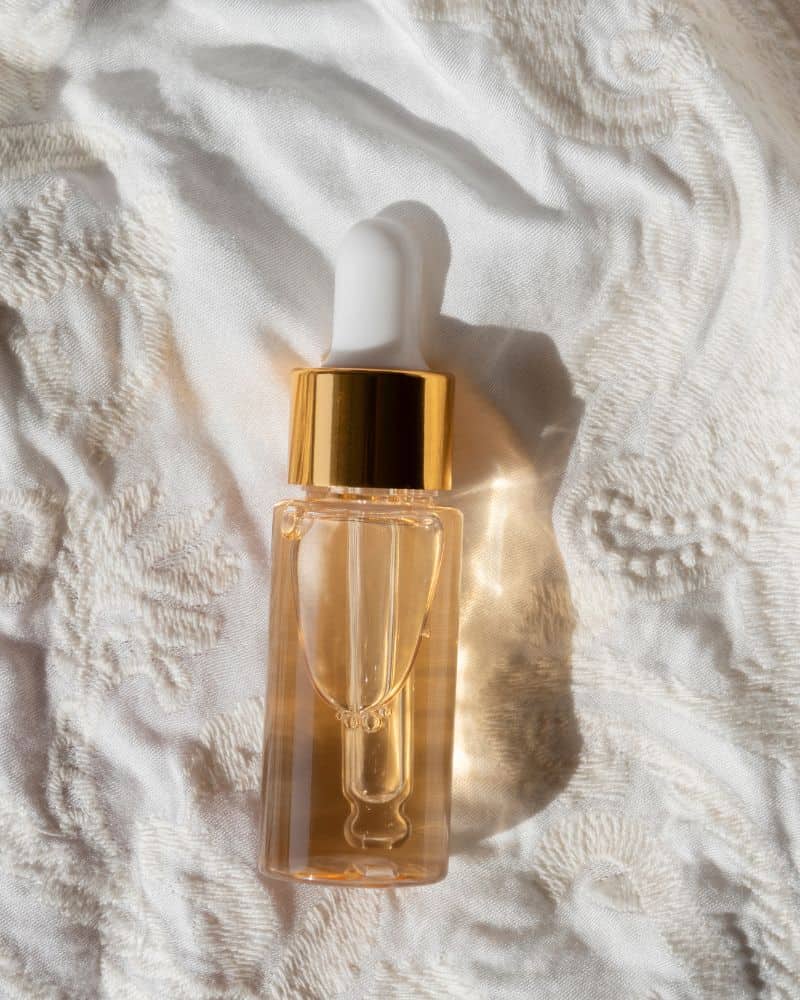Squalane Vs Rosehip Seed Oil: Which Is Better For Your Skin?
This post may contain affiliate links.
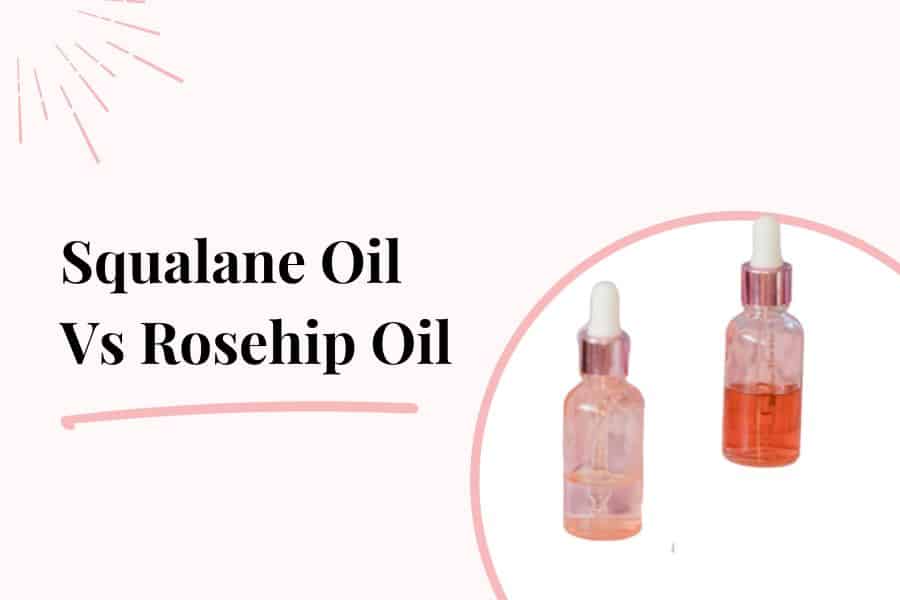
Both squalane and rosehip oil are two incredibly popular facial oils thanks to big brands like The Ordinary, The Inkey List and Biossance. Both oils offer incredible benefits for the skin, so it’s no wonder they have become so popular in recent years. From barrier strengthening to fading acne scars, these oils can do a lot for your skin. In this post we are going to compare squalane vs rosehip oil so that you can decide which one of these oils is best for your skin type and skin concerns.
What Is Squalane?
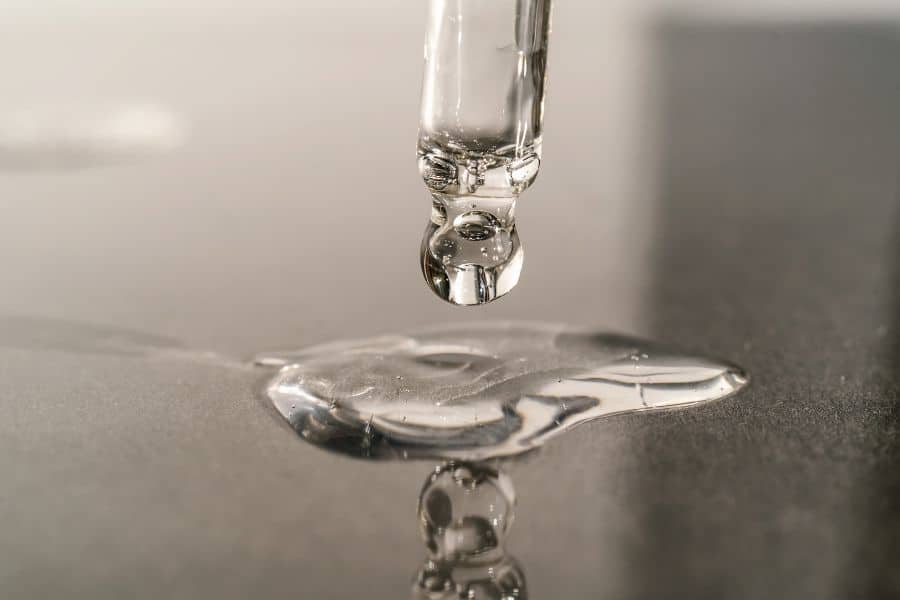
Now before we get into all nitty gritty of squalane and its benefits, first let’s take a look at the differences between squalane and squalene.
Squalene with an e is a type of lipid that is commonly found in many fish oils like shark liver oil, as well as in many plant oils like olive oil. Squalene is naturally produced by our bodies and makes up about 13% of our skin’s sebum.
Its purpose for the skin is to help keep the skin moisturized and the skin’s moisture barrier strong and healthy. Squalene is extremely important for skin’s health.
It’s also been found that squalene has anticancer and antioxidant properties, in addition to its moisturizing properties.
Squalane with an a is simply a hydrogenated version of Squalene. This means that the double bonds in squalene have been removed, making it more stable. (Who knew I’d still be using what I learned in Organic Chemistry in college).
Squalane has all the same benefits of squalene, with the added benefit of being stable, which is why squalane is what’s used in skincare products. Thanks to the hydrogenation process, we can get all the benefits of squalene in our skincare products.
Benefits Of Squalane
Squalane has all the benefits of Squalene (which is a lot), so here’s a look at all the things squalene and squalane can do.
- Antioxidant – one of the best benefits of squalane is that it has great antioxidant powers that can help defend skin against environmental aggressors like UV rays and pollution. Antioxidants can help prevent skin damage and premature aging
- Emollient – squalane is a great emollient that helps to soften the skin while reducing rough patches and flakiness. This is key when it comes to keeping the skin barrier strong and healthy
- Moisturizing – one of the things squalane is best at is moisturizing. It helps to keep the skin barrier strong which helps to lock in hydration. As we age, our skin tends to become drier, partly because the production of squalane slows down. Using squalane in your skincare routine can replace the loss and keep skin moisturized as you get older
- Wound healing – squalane promotes tissue repair and wound healing by stimulating immune cell response. This can help speed up the healing of cuts and scrapes or even acne and post-inflammatory hyperpigmentation
- Stimulates collagen – squalane can stimulate collagen production which can help firm the skin, prevent premature aging and diminish fine lines and wrinkles
- Treats acne – squalane has also been shown to help treat acne. It’s thought that squalane helps to balance the amount of unsaturated to saturated fatty acids, which can help treat acne
When Should You Use Squalane?
Although Squalane is considered an oil, it doesn’t really feel like one. It’s very lightweight and doesn’t feel greasy or oily. This is important when determining when to use squalane oil in your skincare routine. Because it’s considered an oil, you want to treat it like any other facial oil. That means you should use it after any serums or essences. Squalane oil can be used on top of or mixed in with your moisturizer, just depending on personal preference.
What Is Rosehip Oil
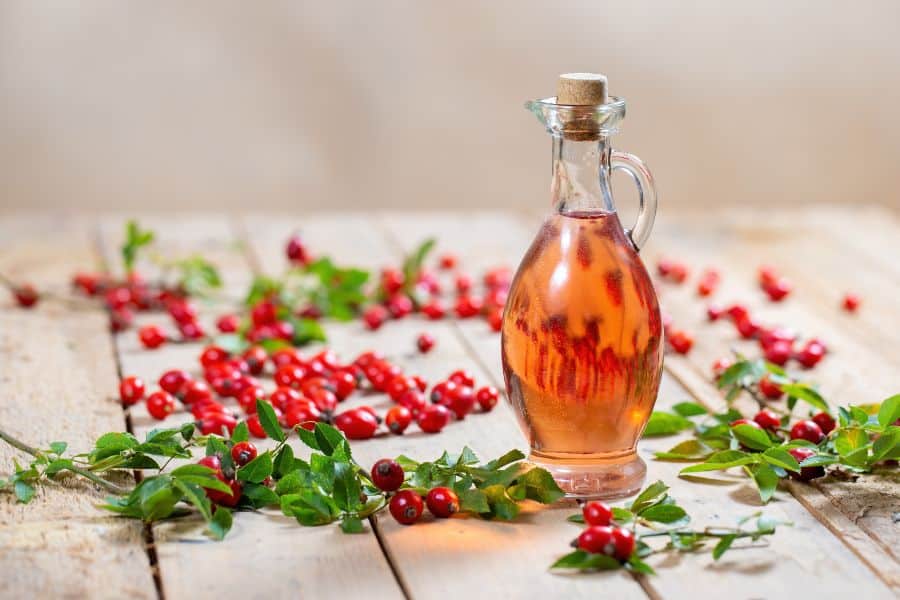
Rosehip seed oil, often known as Rosehip oil, is extracted from rose bush seeds after the petals have fallen. Wild rose bushes grow in the Andes Mountains and produce the majority of Rosehip Oil, although it may also be found in a few other locations throughout the world.
Rosehip oil is unique in that it’s classified as a “dry oil” which means that it’s lighter and less greasy than other oils. You’ll instantly notice the difference between a dry oil like rosehip oil and non-dry oils. It moisturizes without leaving an oily layer or feel on the skin, which is one of the reasons why Rosehip oil is so popular among people with oily and acne-prone skin.
Rosehip oil is so popular in the skincare industry because it has so many amazing benefits thanks to its high concentration of vitamins, minerals and antioxidants. And it’s a great oil for those who do not like the feel or finish of traditional facial oils.
Rosehip Seed Oil
Rosehip oil is a dry oil, so it has a lightweight, non-greasy texture and feel. It can help to brighten skin, fade hyperpigmentation, reduce signs of aging and even treat acne.
Benefits: smooths texture, fades hyperpigmentation, promotes collagen production, prevents acne, provides antioxidant protection, plumps fine lines and wrinkles
Best for: oily, combination and acne-prone skin
How Often To Use: Can be used every day, morning and night
What To Look For: 100% pure, cold-pressed Rosehip Oil
Benefits Of Rosehip Oil
- Anti-aging – Rosehip seed oil is high in Vitamin A which helps to stimulate collagen production to plump fine lines and wrinkles and reduce premature aging. Keeping the skin moisturized can also help to temporarily plump the skin for a more youthful look
- Brightening – Rosehip oil is known for its brightening properties. It’s rich in Vitamin A and Vitamin C which help to brighten the skin tone and fade discolorations like sunspots and acne scarring
- Hydrating – Many people don’t think of oils as being hydrating, but since they are rich in fatty acids, they can help to keep hydration locked in
- Exfoliating – Because of its high concentration of Vitamin A, Rosehip oil can help to exfoliate the top layer of the skin to help with skin tone, acne, texture and scarring and more
- Antioxidant – Rosehip oil is rich in antioxidants but has a particularly high concentration of Vitamin C, which is one of the strongest antioxidants. Antioxidants help to protect the skin from free radical damage from environmental factors like UV rays or pollution
- Acne – In addition to the acne fighting properties of Vitamin A, Rosehip Oil also has antibacterial properties so it can kill acne causing bacteria
- Healing – This oil is also rich in nutrients, vitamins, antioxidants and other components that help to speed up wound healing and promote tissue repair
- Anti-inflammatory – It’s been found that rosehip oil is a great anti-inflammatory facial oil that can help to reduce redness and calm irritated skin. It can also help with inflammatory skin conditions like eczema
Related Post: Watermelon Seed Oil Benefits
Who Should Use Rosehip Oil?
Rosehip oil is suitable for all skin types and is especially beneficial for people with mature, dry, and/or sensitive skin. It can also be beneficial for those with acne-prone skin, as it is non-comedogenic (meaning it won’t clog the pores). In addition, rosehip oil is great for those looking to even out their skin tone and reduce the appearance of scars and stretch marks.
What’s The Difference Between Squalane And Rosehip Seed Oil?
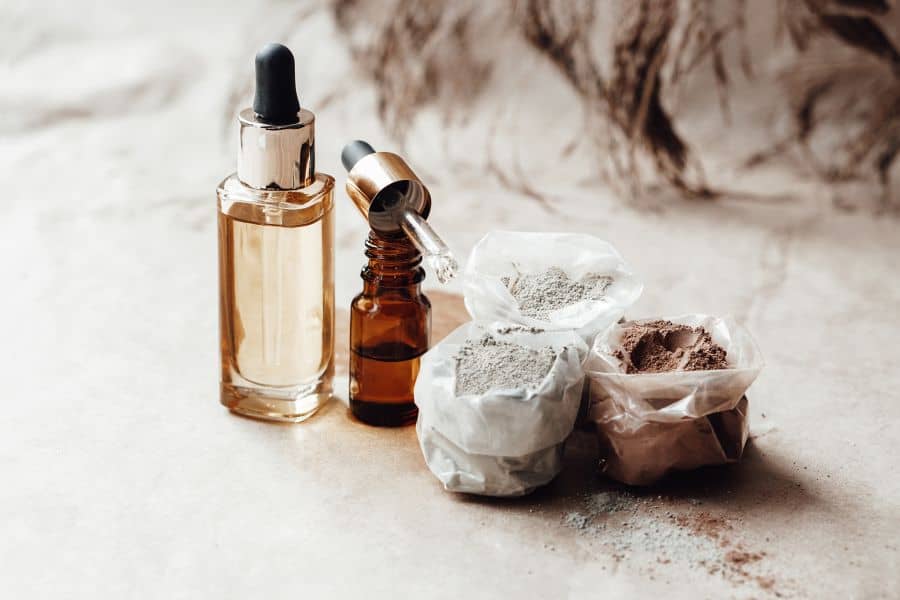
Squalane is a hydrogenated form of squalene, a natural oil that is found in the skin. It is a non-greasy oil that can help to reduce trans-epidermal water loss, protect skin from moisture loss, and keep skin feeling soft and smooth. Rosehip seed oil is derived from the seeds of the wild rose bush and contains a high concentration of essential fatty acids and antioxidants that can help to improve the overall look and health of the skin. It can help to reduce the appearance of scars, wrinkles, and fine lines, as well as help to improve skin hydration, reduce inflammation, and protect skin from environmental damage.
Let’s take a closer look at the similarities and differences between rosehip oil and squalane oil.
Related post: Squalane Vs Hyaluronic Acid
Squalane Vs Rosehip Oil Similarities
Both Squalane and Rosehip Oil are natural oils that can help to nourish the skin and strengthen the skin barrier. They are both lightweight and non-greasy, and can be used on all skin types. They both have anti-aging properties, can help to reduce the appearance of wrinkles and scars, and can help to improve the skin’s elasticity and firmness.
Squalane Vs Rosehip Oil Differences
There are quite a few differences between squalane oil and rosehip seed oil. The biggest one being that rosehip oil offers more benefits for the skin. It can help to hydrate, moisturize and soothe the skin as squalane can, but it can also help to smooth, brighten, protect against environmental damage, stimulate collagen production and fade acne scarring.
Rosehip oil is rich in fatty acids which help to keep the skin hydrated, but it also contains vitamins A, C and E which can help to reduce inflammation and fight free radical damage. Squalane on the other hand is a great moisturizer that helps to restore balance to dry skin and protect from moisture loss, but it doesn’t have any of the antioxidant properties, vitamins or other beneficial nutrients that rosehip oil does.
Squalane oil is an incredible moisturizer and though it’s suitable for all skin types, those with dry skin will benefit the most from its hydrating and moisturizing properties. Rosehip oil, on the other hand, is great for all skin types as well, but due to its high concentration of vitamin a and anti-inflammatory properties, those with acne-prone and oil skin will benefit the most from rosehip oil.
Another big difference between the two is that squalane can be sourced from shark liver, olives, sugarcane and more. Rosehip oil, however, can only be sourced from rose bushes.
Squalane Vs Rosehip Oil For Oily Skin
While oily skin can benefit from both oils, rosehip oil is the better choice for oily skin types. It’s rich in linoleic acid, which has been shown to help balance oil production.
Squalane Vs Rosehip Oil For Acne
Both squalane and rosehip oil are non-comedogenic and won’t clog the pores. However, due to its anti-inflammatory properties and high concentration of vitamin A, rosehip oil is the better choice for those with acne-prone skin. The vitamin a can help to treat and prevent acne while also helping to fade acne scars and hyperpigmentation.
Squalane also has great anti-inflammatory properties which can soothe breakouts, reduce redness and calm the skin, so it’s also a great choice for acne-prone skin types.
Related post: Rosehip Oil Vs Marula Oil
Squalane Vs Rosehip Oil For Wrinkles
Both squalane and rosehip oil are great for wrinkles, but they each work differently in how they target wrinkles.
Squalane works to deeply hydrate the skin, which can help to plump up the skin and reduce the appearance of fine lines and wrinkles.
Rosehip oil is rich in vitamin a which helps to smooth fine lines and wrinkles and stimulate collagen production to keep the skin plump and youthful. It’s also rich in antioxidants like vitamin c and vitamin e which help to protect the skin against free radical damage (which prevents fine lines and wrinkles from forming).
Can I Use Squalane With Rosehip Oil?
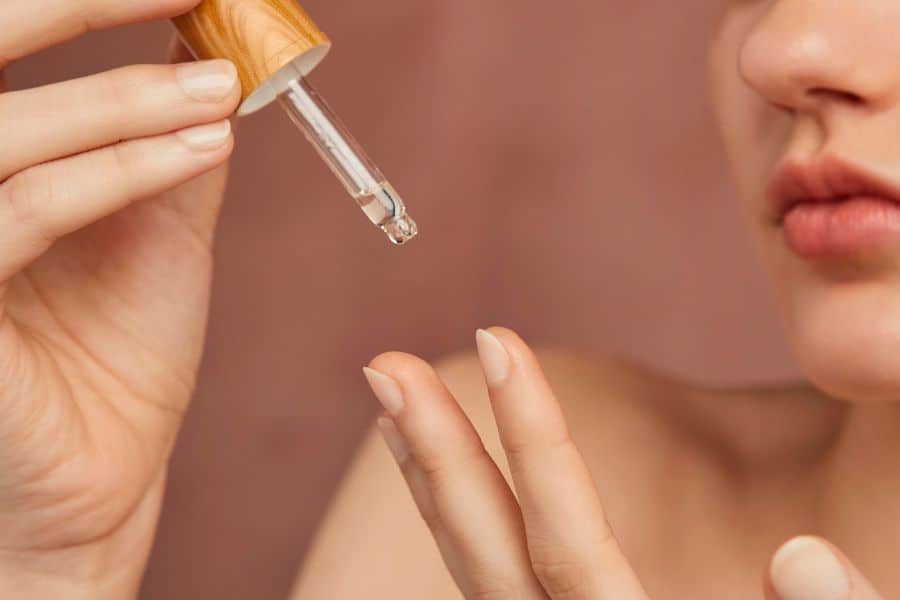
Now that you know all about the incredible benefits of these oils, you may be wondering can you use squalane and rosehip oil together?
Yes, you can absolutely use squalane with rosehip oil. In fact, the combination can be incredibly beneficial to the skin. Squalane is known for its emollient properties, which help to lock in moisture and create a protective barrier on the skin. Rosehip oil is a powerhouse of nutrients and antioxidants that can help to reduce signs of aging, nourish skin, and brighten the complexion. The combination of these two oils can help to keep skin hydrated, protect it from environmental stressors, and give you a glowing, healthy complexion.
Related post: Can You Use Retinol With Rosehip Oil?
Can I Mix Rosehip Oil And Squalane?
Yes, you can mix rosehip oil and squalane. They are both lightweight oils that can be combined to create a powerhouse facial oil that can target any and every skin concern you may have. Rosehip oil is a great source of essential fatty acids and antioxidants, while squalane is a lightweight, non-greasy oil that helps to protect and moisturize the skin. Together, they can help to reduce the appearance of wrinkles, improve skin elasticity, and protect against environmental damage.
Squalane Vs Rosehip Oil Wrap Up
Overall, both squalane and rosehip oil are incredibly beneficial for the skin. While they have similar properties, some differences make them better suited to different skin types. For those with dry or aging skin, squalane can help deeply hydrate while rosehip oil is best for acne-prone and oily skin due to its anti-inflammatory properties and high concentration of vitamin A. You can also mix these two oils together to get a powerful combination that targets all your skincare needs. Whatever you choose, using either one will leave you with glowing healthy looking skin!
In conclusion, there is no clear winner when it comes to squalane oil vs rosehip oil. Depending on your skin type and needs, either one could be a great choice for you. If you’re looking for a lightweight moisturizer, then squalane oil might be best. If you need more of an antioxidant boost, then rosehip oil might be what you’re looking for. Ultimately, it’s best to experiment and find out which one works best for you.
